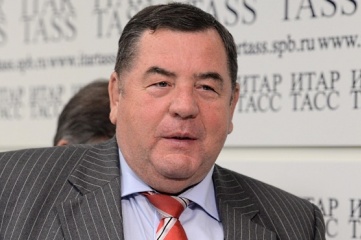Host City: How is SAMBO spreading geographically today from its Soviet origins 80 years ago?
Vasily Shestakov: Nowadays SAMBO is a sport that is spread on five continents with 4.5 million passionate and engaged participants. The sport grew dramatically over the last two decades to encompass 88 full member federations and more than 30 candidate countries. This is the result of extensive interest in martial arts in general, but thanks foremost to the strong commitment of the International SAMBO Federation and its strategy and vision to become the Olympic recognised sport.
Host City: What are your priorities when looking for a host city and how do you go about selecting/attracting a host?
Vasily Shestakov: More than 30 major SAMBO competitions are held annually at the international level under the auspices of FIAS. The FIAS Competition calendar is composed of traditional events, which are historically organised in the same city for a number of years, such as the World Cup in Moscow and the chain of the Presidents Cups, traditionally hosted in the UK.
Moreover, we organise annual World Championships in different age categories in collaboration with our member federations, through the official bidding process opening at least three years before the events. However, we see the importance of exploring further opportunities to engage with host cities directly, as this is an important change in organisation of events globally.
Host City: What are the main benefits of hosting the SAMBO championships?
Vasily Shestakov: International SAMBO events give host cities opportunities related to tourism. The average number of participants in the international events is about 1,000 people, which together with the fans gives us about 3,000 people attending the event. This provides the host city with opportunities to generate income for hotels, restaurants, transport, touristic attractions etc.
Moreover, FIAS is strongly engaged in promoting the sustainable management of its events, with opportunities to build legacy in three pillars: economical, environmental and social. So, for host cities that would like to organise sports events with these values, SAMBO events could be the option.
Host City: How does Sambo differ from other forms of (mixed) martial arts?
Vasily Shestakov: SAMBO is the unique synthesis of various techniques and martial arts from around the world. It is an original system of physical and spiritual education of person, in which many nations of the world recognize their sporting styles and traditions.
Host City: What does the future hold for SAMBO?
Vasily Shestakov: This year marks the 80th anniversary of SAMBO and it is due to be another thrilling year for the sport. Most importantly, we are hoping to continue with the excellent growth we have seen in recent years: making SAMBO more accessible to people all over the world. While SAMBO is still not recognised by the International Olympic Committee, we are very much looking forward to working extensively on our recognition and believe that in a short period we can reach our goal.
Michal Buchel, CEO of FIAS is giving a presentation on “Building recognition and participation” at Host City 2018 in Glasgow on 20-21 November


